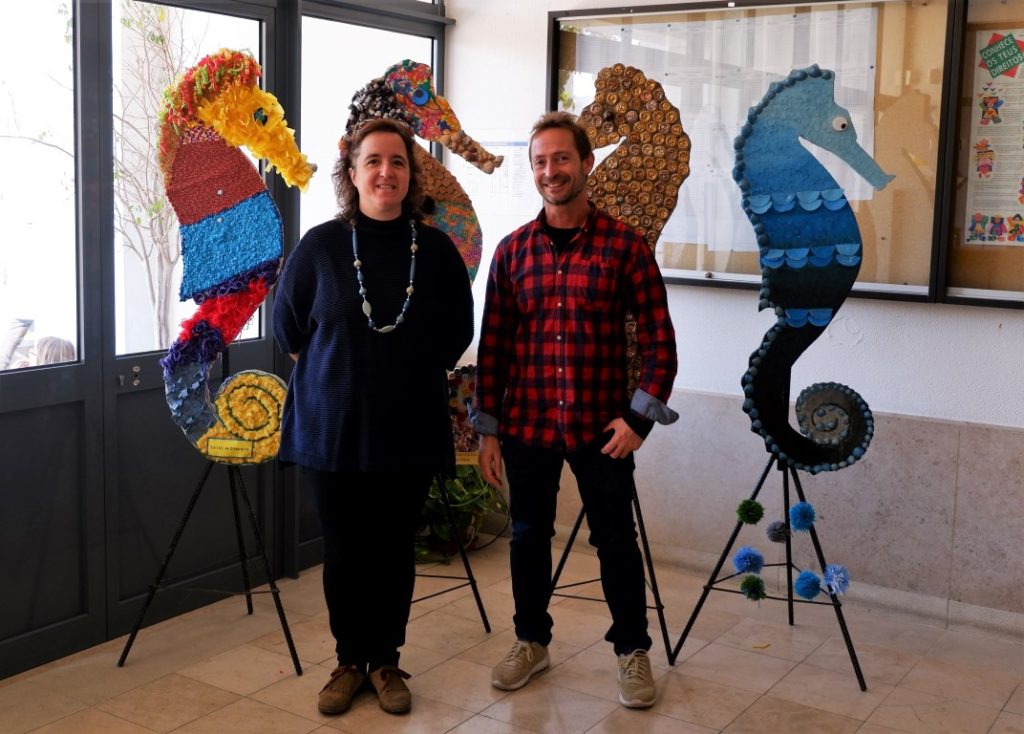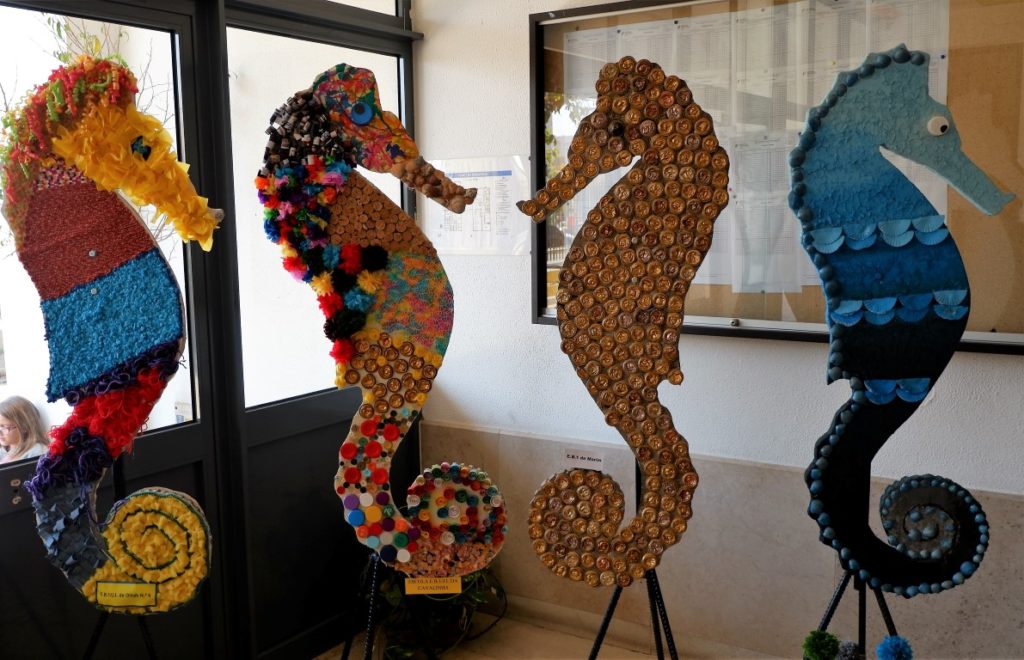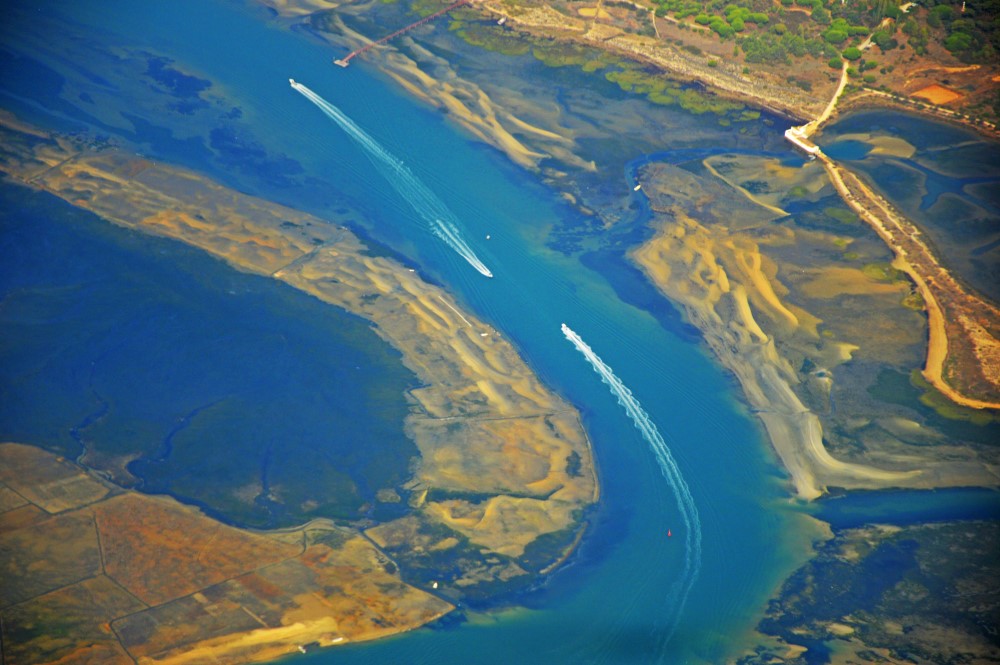
The fight against ocean pollution, nationally and internationally, is creating strong allies in Olhão. The João da Rosa School Group, in this municipality, is the only one in the Algarve involved in the “Escola Azul” project, a national initiative that is still in an experimental phase, whose main objective is to increase literacy about the oceans and promote a change in mentality.
«For now, this is a pilot project. Some educational establishments were chosen, which will be used to start the Escola Azul. If this project works, the idea is to implement it at national level, and perhaps at European level», according to Carla Pacheco, marine biologist and representative of the Association of Parents of the João da Rosa School Grouping in this project. The organizing entities are the Oceanário de Lisboa, Ciência Viva and the Directorate General for the Politics of the Sea.
“The big problem we face is pollution and waste in the oceans. It is estimated that there is an average of eight million tons of waste entering the oceans each year – and this is the most optimistic estimate. That's why so many concerned governmental and non-governmental entities are emerging," explained Carla Pacheco to Sul Informação.

The main objective is “to try to change the course of things”, bearing in mind that “we are heading towards a catastrophic scenario”, betting, for that, on raising awareness among the younger population. Thus, the Escola Azul project involves children and young people from pre-school to 9th grade.
Garbage and pollution in the oceans is the central theme of the project, with a very special focus on the plastic that is increasingly accumulating in the seas. But the way to get the message across is different in each of the establishments involved. In the Algarve, the symbol chosen was the sea horse.
“Each of the groups involved in the project was asked to choose a topic that was somehow related to the school. Taking into account the close relationship that this group has with Ria Formosa, we wanted it to be something related to it», illustrated Nuno Magalhães, the professor who coordinates this project, at the João da Rosa Group.
The professor recalls that this lagoon system "is one of the most important natural parks in the country and has an extraordinary biodiversity." One of its main characteristics «are the seagrass meadows, what is locally known as sebarrinha».
These plants, which live in salt water, «have an enormous ecological importance, as they fix carbon dioxide, combating its increase in the atmosphere and are a stronghold of biodiversity».
“It is on these grasslands that most fish with commercial interest breed, because the juveniles are protected. These herbs also serve as scrubbers, removing pollutants from the water – they absorb nitrates, carbon and others. Therefore, it is very important to protect them», considered Nuno Magalhães.
These characteristics of seagrass meadows make many species choose them as a home. Among them, there is the seahorse. “Our idea was to take an emblematic species, to, by raising awareness for its preservation, protect the seagrass ecosystem,” he added.

The Escola Azul project started a few months ago and will last for two years. And if, in this first phase, it was necessary to do a lot of preparatory work, the group's students were still involved.
“We are currently in the awareness phase for the project. We bet a lot on pre-school and 1st cycle students. We are working closely with the teachers, who have had some training», referred Nuno Magalhães.
Teachers talk to children about the topic and challenge them to make drawings and other work, using their creativity. «We also want to take each of the pre-school and 1st cycle classes to the Centro Ciência Viva do Algarve, in Faro, to have a little workshop», added João da Rosa's teacher.
«With regard to the older students, the 2nd and 3rd cycle students, we want to carry out actions in Ria Formosa, with the support of CCMar and the University of Algarve. They will not be direct observation of the seahorse, but focused on the ecosystem where it lives. And we are also going to take some groups to the Ramalhete research station, where there is a project for the reproduction of captive seahorses», he anticipated.
Another action that will be promoted under this project is the workshops about plastic in the oceans, which Carla Pacheco will direct. The representative of the Association of Parents received specific training in this area from the Lisbon Oceanarium.
In this case, the idea is to start in a more localized way and extend to the entire region. “Schools have already started to receive invitations and we are going to start scheduling workshops”.
“I think this project makes perfect sense, not only in locations closer to the sea, but globally. It is truly frightening, if we look at the pollution of the oceans with an eye to see», defends Carla Pacheco.
In the end, it is intended that each of the students involved in the project, «as a citizen, realizes that, despite being a small drop of water in this “ocean”, they can contribute to change».


















Comments